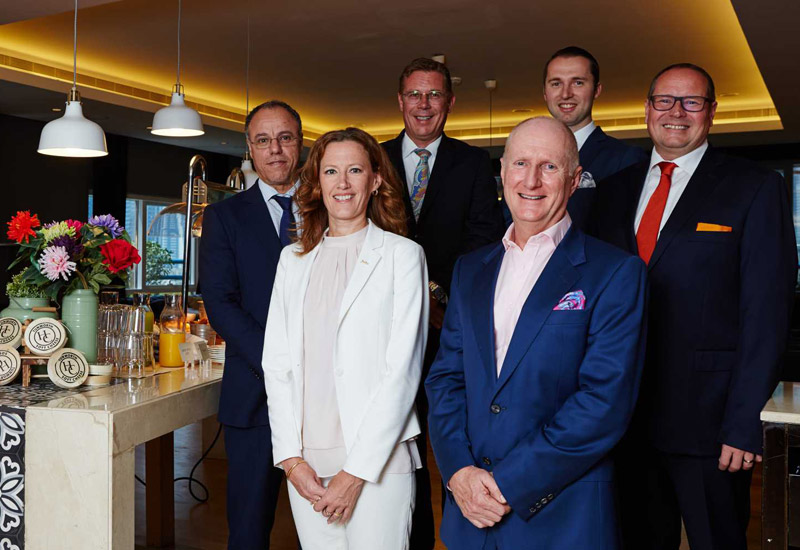HOTELIER: What about food and beverage in terms of revenue stream? We have heard that an estimated 1,600 new F&B outlets will open in the UAE over the next three years, along with people saying hoteliers can’t do restaurants.
ANDREW: There’s no doubt that food and beverage businesses fail at an alarming rate. So what’s the balance? Are we gaining 1,600 but losing 800, or are we gaining 1,600 net? It’s an interesting question, but particularly independent restaurants fail at a frightening rate. The market will decide how many F&B places you need.
MARKUS: What’s really dictating the food and beverage scene is Generation Y for the next few years to come. It’s sometimes hard to keep track of that because when we do F&B development, it takes place three or four years before we open the hotel.
For Gen Y, it’s the experience, and you can see that coming to the Middle East. For them it’s also a social currency to talk about good experiences or restaurants.

| Advertisement |
For my hotel, we looked at a free-standing approach. So the people I hired are not hoteliers, they are from the free-standing market. We also looked at the outside customer, because the in-house guests will come anyway. Those restaurants who are getting great chefs in and servers and then fading it out, they will not survive.
ABDELLAH: We came to that realisation that you can either be a hotelier or a restaurateur. As an owning company, we are going to lease space as much as we can. Let me ask you this, if you’re in London or Paris and you want to entertain friends for a night out, would you take them to a hotel? The immediate answer is no — you don’t even have to think about it. You take them to an independent restaurant. Here in the UAE there weren’t any standalone restaurants earlier. When we saw this emergence of independent restaurants then it became clear to us that we’re not restaurateurs. Zuma in Dubai makes more money — and this is a fact — than a 200-room hotel. And that is a trend now, you have more and more independent restaurants that are licensed and they are taking business away from the hotels. The only way that hotels can counter-attack that is by putting independent restaurants in their hotels.
ANDREW: It’s the tyranny of the brand. We have a brand, whether it’s Radisson or Kempinski or Jumeirah or Viceroy. The brand is more important than the individuality so as soon as you start having individuality, you start moving away from the brand. It’s an interesting discussion for us. Is it good to have a brand? You have all these mergers going on and the emergence of a mega-brand, and certainly in F&B and in hotels, the landscape is changing. People are looking for individual experiences, which brands tend not to be able to give. That doesn’t mean they can’t but they are more restricted in F&B and the guest experience. So the question is: are brands a good thing?
KAI: But the perception of people, you mentioned Europe — who goes for brunch to a hotel? They don’t, also because of the perception that the hotels are going to be expensive, which is not necessarily the case.
STEFAN: If you look at how we approach food and beverage now, we only talk about food and beverage costs — the only number which interests the owner. The question is, for independent restaurants, are food costs and beverage costs the main objective? Because for hoteliers, that is. The fact that we’re having this discussion shows that we are challenged in food and beverage, and there must be a different approach to what we did over the last few years, because this is not the recipe for the future.
MARKUS: There are some of us who came from food and beverage, but general managers are all trained on room flow, RevPAR index, more than how to activate and create experiences. The experience is the key for the future. The time is over when you have a static menu for two or three years and don’t change anything.
ANDREW: This is interesting because it goes back to hotel design, which is designed with X number of rooms and X number of restaurants. Maybe the reality is that we keep the X number of rooms but keep X minus restaurants. Because as cities evolve, there’s no doubt that the independent restaurant scene will always be more vibrant. There is the wrong focus in many hotels where we have too many restaurants. Hotels haven’t caught up.
OTHER TOPICS RAISED:
• Women in leadership and how this affects the industry
• Loyalty programmes and the reasoning behind them
• Concession business at MICE events
• TripAdvisor’s new hotel ranking algorithm and how hotels should understand this
• The industry’s mergers and acquisitions
• Using Whatsapp as a room reservations tool









 Search our database of more than 2,700 industry companies
Search our database of more than 2,700 industry companies









